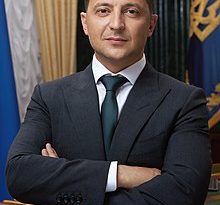Chris Leslie – 2014 Parliamentary Question to the Ministry of Justice
The below Parliamentary question was asked by Chris Leslie on 2015-01-15.
To ask the Secretary of State for Justice, what types of offence resulted in confiscation orders being made in 2012-13; and how much was collected as a result of those orders.
Mike Penning
The table below shows the primary offence type for all confiscation orders made between 01/04/2012 and 31/03/2013 and the current amount paid against those impositions as of 16/01/2015. The ‘Amount Paid’ does not include any sums of interest that may have been collected on those orders.
|
Primary Offence Type |
Amount Paid |
|
Arms Trafficking |
£ 2,274.00 |
|
Bribery and Corruption |
£ 724.00 |
|
Burglary / Theft |
£ 5,178,518.99 |
|
Counterfeiting / Intellectual Property / Forgery |
£ 3,482,693.99 |
|
Drug Trafficking |
£ 27,142,467.06 |
|
Excise Duty Fraud |
£ 1,250,612.62 |
|
Handling Stolen Goods |
£ 778,521.81 |
|
Intellectual Property Crime |
£ 390,863.43 |
|
Money Laundering – Drugs |
£ 8,183,885.75 |
|
Money Laundering – Other |
£ 18,291,592.71 |
|
Other Crime |
£ 8,045,149.97 |
|
Other Fraud / Embezzlement / Deception / Crimes of dishonesty |
£ 22,650,449.84 |
|
People Trafficking |
£ 281,589.31 |
|
Pimps and Brothels / Prostitution / Pornography |
£ 965,260.92 |
|
Robbery |
£ 167,503.53 |
|
Tax and Benefit Fraud |
£ 9,078,615.86 |
|
Terrorism |
£ 39,945.15 |
|
Trading Standards Offences |
£ 435,591.73 |
|
Unknown |
£ 125,986.91 |
|
VAT Fraud |
£ 10,548,046.91 |
|
Vehicle Offences |
£ 917,892.02 |
|
Grand Total |
£ 117,958,186.51 |
Confiscation orders are one of the key mechanisms available to the Government to deprive criminals of the proceeds of their crimes. They are based on the notional benefit attributed to the crime and may, therefore, exceed the value of realisable assets that are known to the Court at the time of imposition. Crucially, an order that is outstanding stops the criminal benefitting from the proceeds of crime and ensures that, if assets are discovered in the future, they can be seized.
HM Courts and Tribunals Service (HMCTS) and other agencies involved in confiscation order enforcement take the recovery of criminal assets very seriously and are working to ensure that clamping down on defaulters is a continued priority.
The amount defendants repaid from their criminal activity across all agencies has increased for the last five consecutive years and we are currently on course to have another highly effective year. £137.2million was collected in 2013/14 (which represented a 4% increase on the total recovered during 2012/13); as at the end of December 2014, £113 million had been recovered, which is an increase of 10% on the same period last year.


